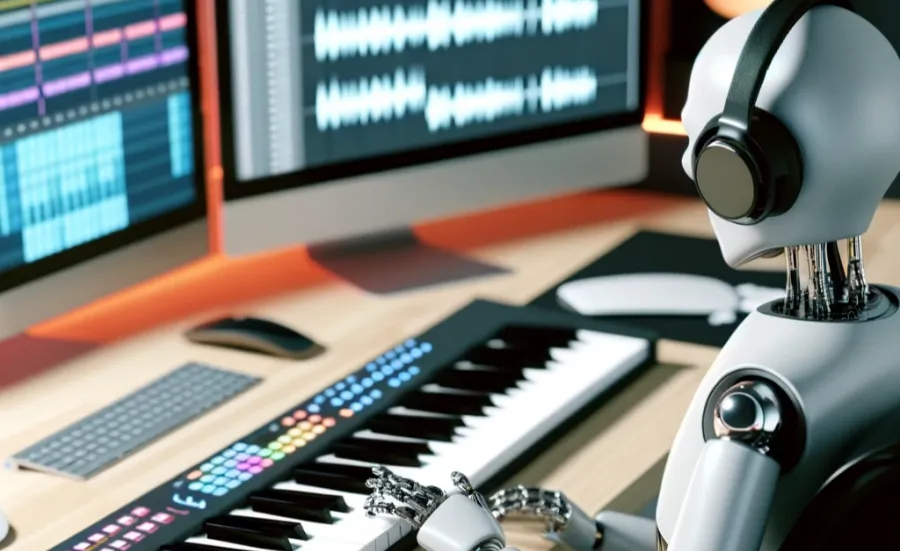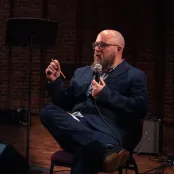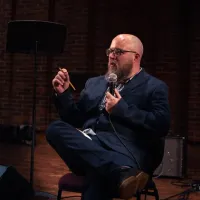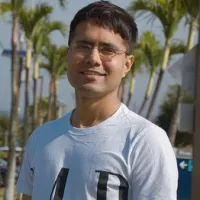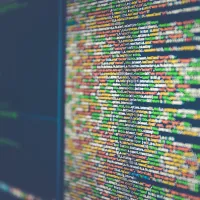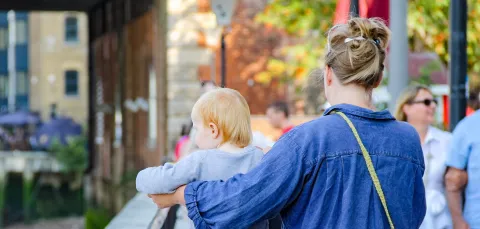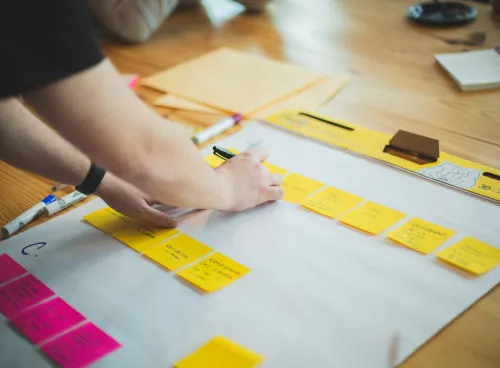Southampton researchers created a text generator, LovelaceGPT, that produces quirky love letters which are then set to music.
The resulting music compilation, Love Letters, was performed in London and Southampton by British soul sensation Hannah Williams, a vocal coach at the University. She was accompanied by the contemporary classical group Riot Ensemble.
Music and AI combine for a quirky performance
Creating a text generator
Southampton's Dr Benjamin Oliver, an associate professor in composition, worked with Professor Will May, professor of modern and contemporary literature, to gather a large body of love poetry and song lyrics.
Student intern Yaseen Mohammed Osman, mentored by lecturer in computer science Dr Shoaib Jameel, built LovelaceGPT and the quotations were entered into it.
Benjamin said the idea for the project came to him with the emergence and popularity of ChatGPT. One difficult thing for composers when writing songs is finding suitable words to set to music.
I thought ChatGPT could help, but I found the generic quality of the content it created frustrating. I had the idea to collaborate with computer science researchers at the University to make a bespoke text generator. So, we ended up developing LovelaceGPT with funding from the University of Southampton's Web Science Institute.
You're my biohazard baby
LovelaceGPT generates words that are often strange but also wonderful and evocative. It has written lyrics such as: 'There is the answer of my life. And you're my biohazard baby!'
Benjamin acknowledges it is liberating to develop creative copy using a text generator. He said: "it produces some really bizarre things that humans wouldn't easily come up with. It also doesn't care in the way collaborators might if you undertake brutal edits, and it never runs out of steam!"
The team made the decision early on not to add words or rewrite the lyrics, and only edit them if they didn't make sense or to meet the aesthetic requirements of the poetry.
Benjamin says working with LovelaceGPT has triggered his creativity further.
As a composition practice-led researcher, I rely heavily on being a creative person, but having an outside influence that is a machine is interesting. Collaborating with people is exciting and wonderful and I love it, but there is also something quite liberating about not having to run everything by someone else.
Requiring the human touch
With AI becoming incorporated futher into our everyday lives, could the future of songwriting become the domain of more chat generators? Benjamin doesn't think so.
"Text generators don't have access to the things that make poetry interesting, touch us or help us to think about the world in a different way. So, in my view, they need human intervention and presentation," he said.
The 7 songs that make up Love Letters have been recorded by Hannah Williams and Riot Ensemble, and are being released by Birmingham Record Company (distributed by NMC) on Benjamin's portrait album TOO MANY SWEETS. The single Delirious Ecstasy was released on Valentine's Day.
